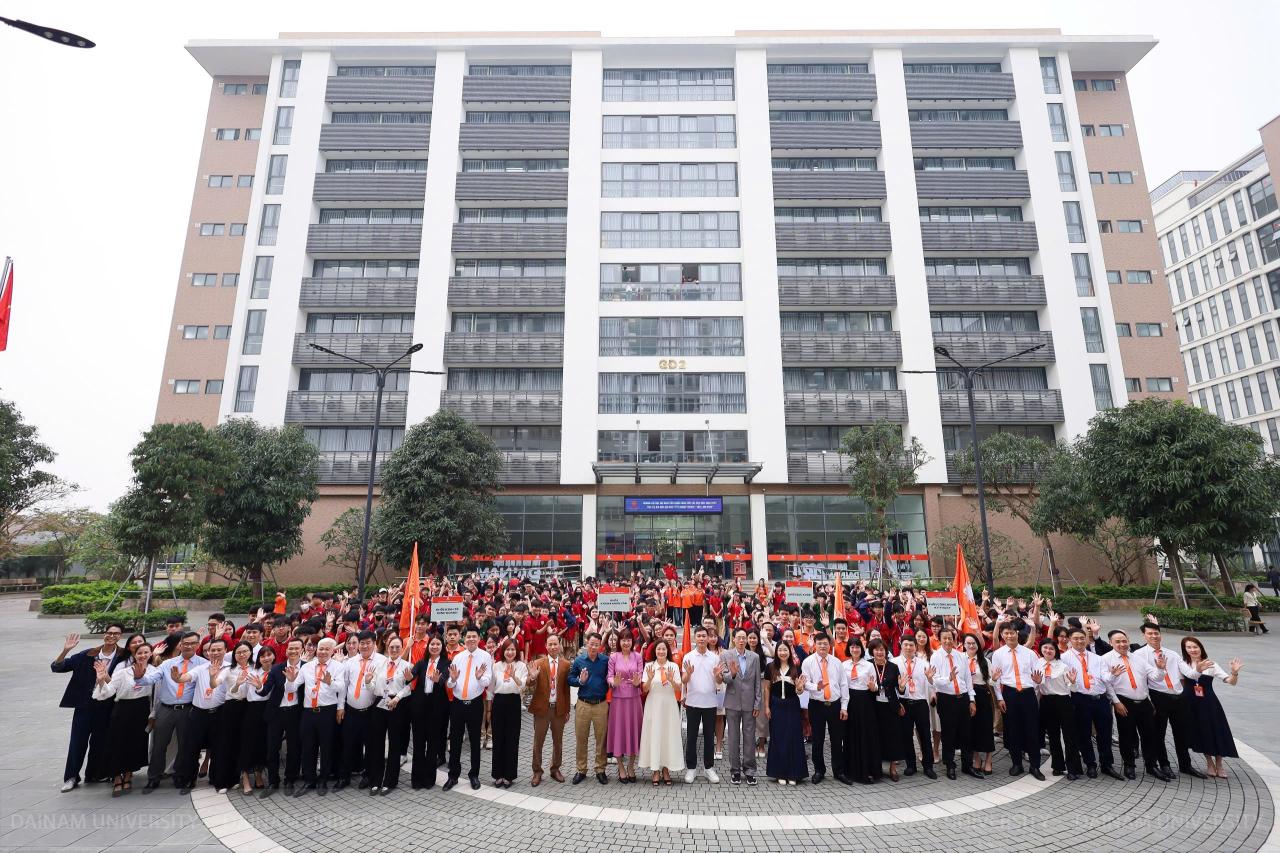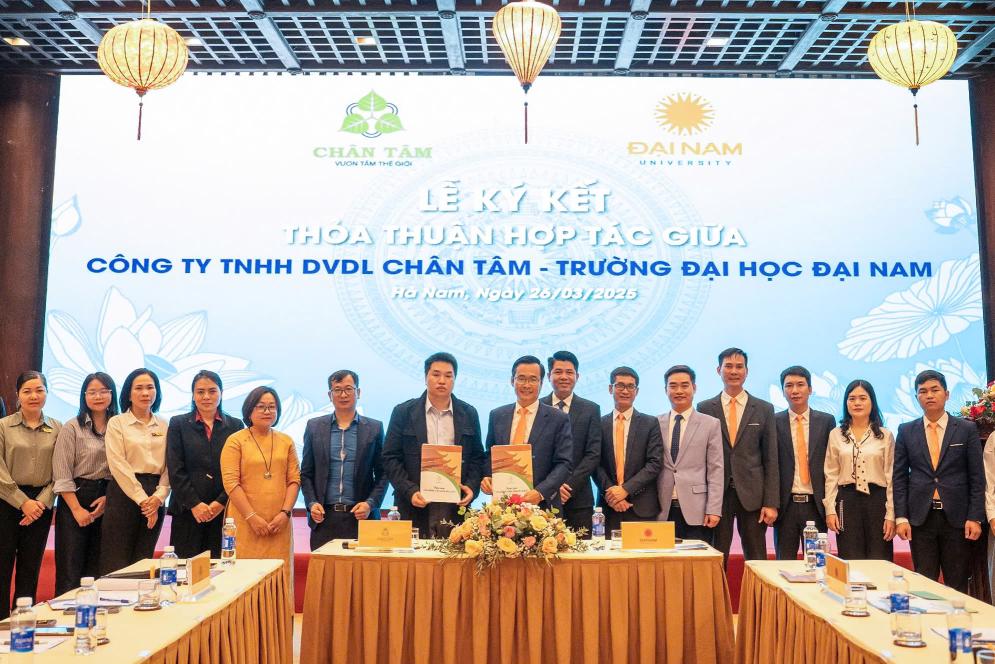What do international employers say about medical training at Dai Nam University?

Understanding the assessments and requirements of international employers on the capacity of medical graduates in Vietnam in general and graduates of medical training programs at Dai Nam University in particular is the key to opening up solutions to improve the quality of medical training according to international standards. Following this approach, Dai Nam University recently organized a symposium on "Training medical human resources from the perspective of international experts". The conference listened to a presentation by Prof. Dr. Ron van Konkelenberg - an Australian expert with 25 years of experience as a consultant for WHO, ADB, WB, JICA and government and private organizations; 15 years of experience working in Vietnam as a senior advisor to the Ministry of Health.
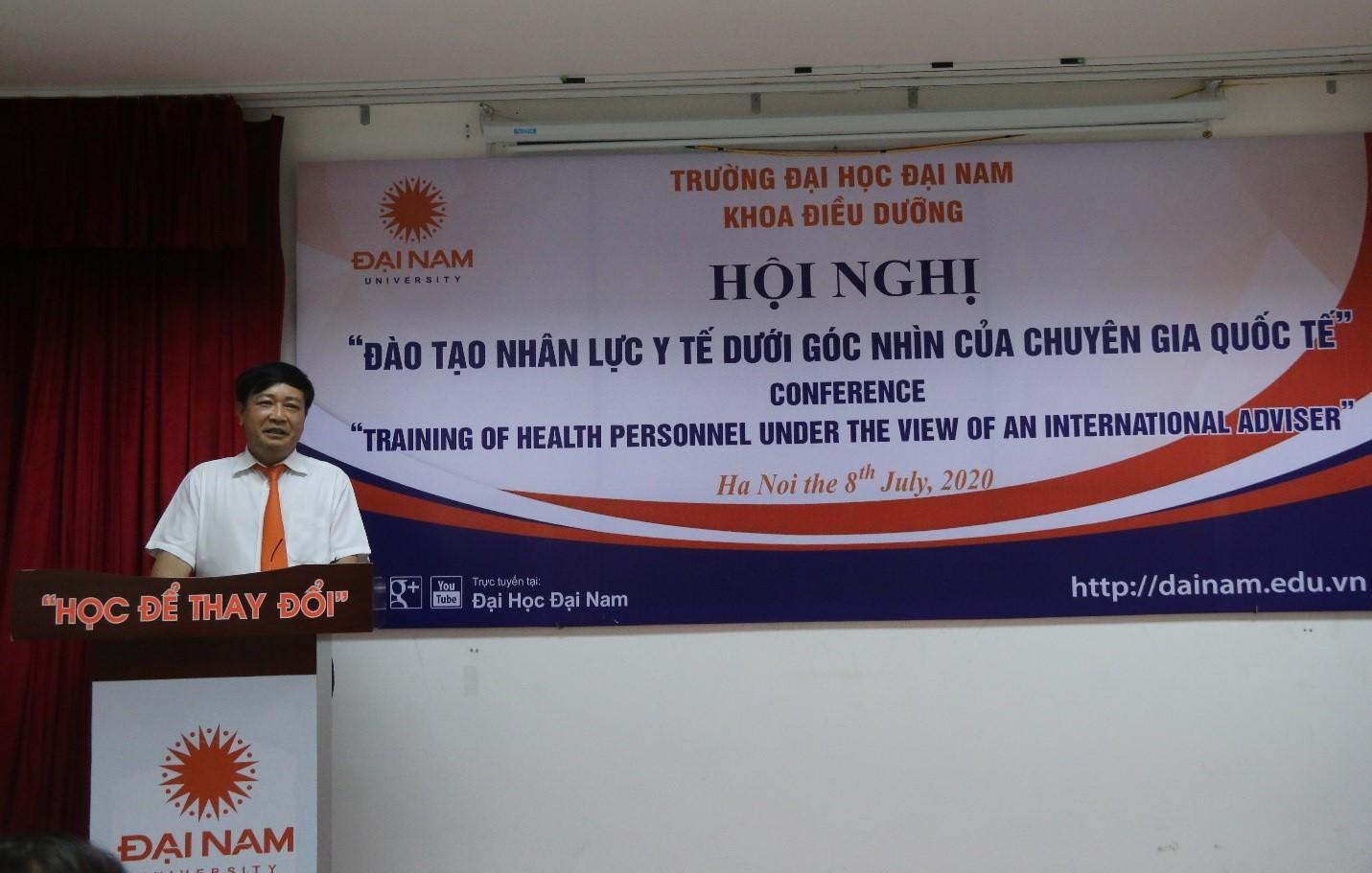
Dr. Le Dac Son - Chairman of the Board of Directors affirmed: Evaluation and requirements of international employers are the key to unlocking solutions to improve the quality of medical training according to international standards.
What do employers need from healthcare professionals?
From the perspective of an international researcher and recruiter, Prof. Dr. Ron van Konkelenberg commented: Medical graduates in Vietnam are not equipped according to international standards. Teaching capacity and training quality at professional medical training institutions have not met the actual requirements of employers.
“Most doctors and nurses trained in Vietnam have three characteristics when graduating: they do not understand what they can do; they have unrealistic job expectations (they do not know who they are); and they cannot use English well for work,” said Dr. Ron van Konkelenberg.
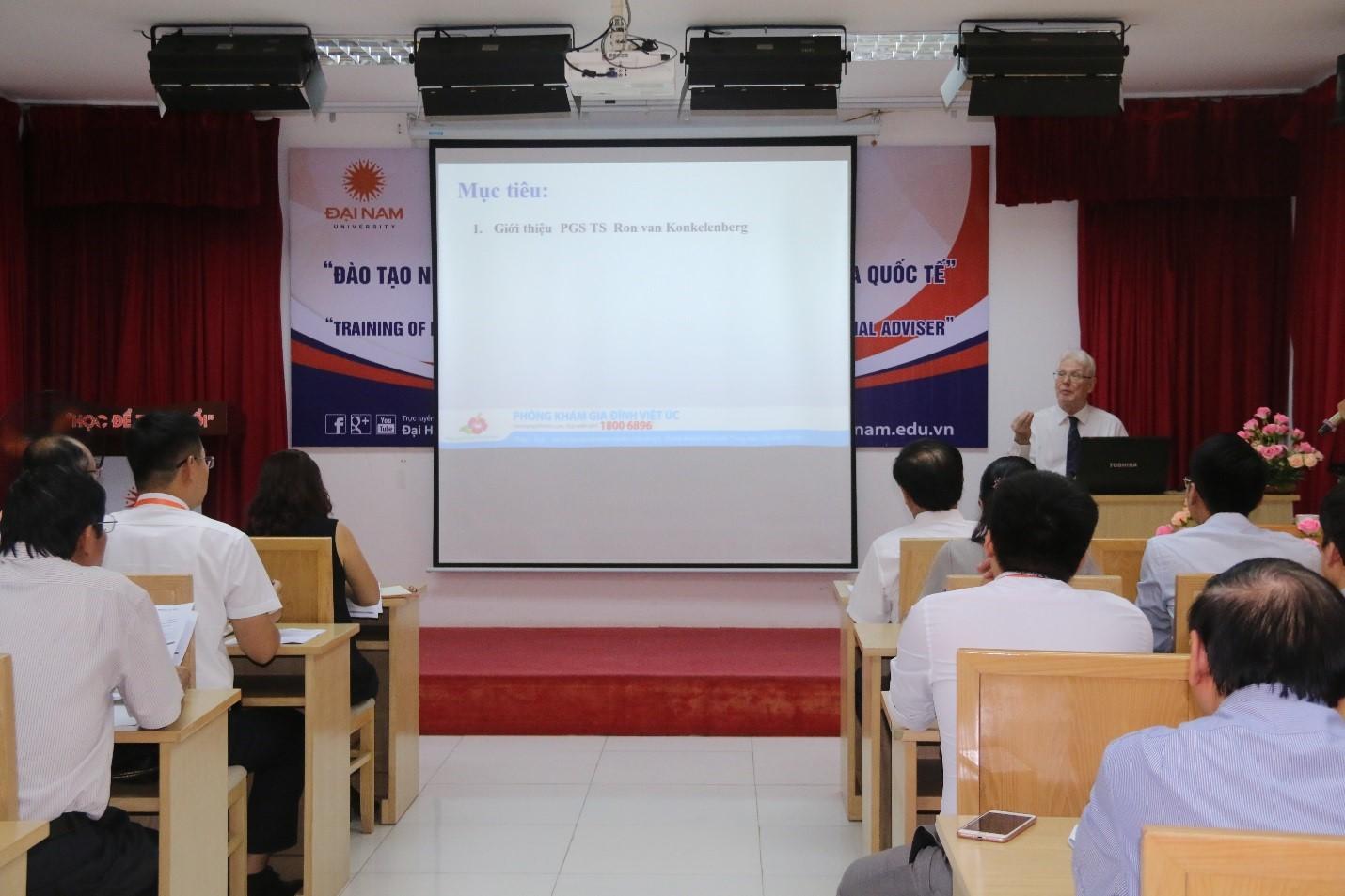
Dr. Ron van Konkelenberg shared issues on training and recruiting medical human resources according to international standards at the Conference.
According to Dr. Ron van Konkelenberg, employers currently need three core qualities in healthcare personnel.
First is personal characteristics: This is the requirement for the attitude of people working in the medical field towards their work, requiring maturity, confidence, caring and an attitude that considers medical care as a profession.
Second is professional skills and competence. After graduation, doctors and nurses must be able to perform core skills confidently, without hesitation or confusion; be able to diagnose and treat/care for about 25-50 common diseases; must be good at English and communicate at a professional level.
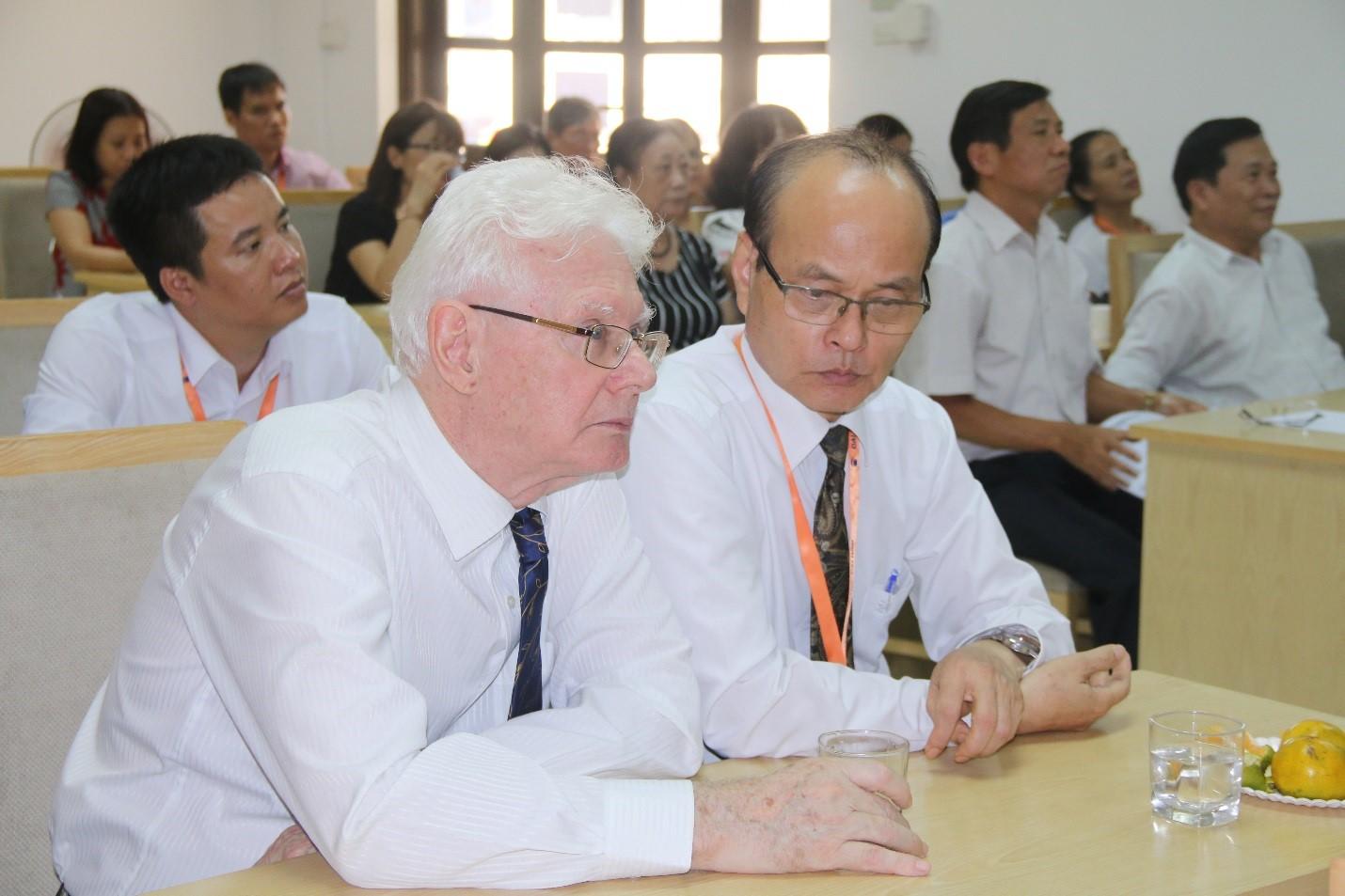
Dr. Ron van Konkelenberg affirmed that the Health Department of Dai Nam University is fully capable of improving training quality and being internationally ranked.
“English is the international language of modern medicine. Most of the research results and medical knowledge published on the internet are in English. Being good at English allows you to update your knowledge, access knowledge bases, and not become outdated because medical knowledge doubles every 73 days,” emphasized Prof. Dr. Ron van Konkelenberg.
Third is soft skills. Those who teach and work in the medical field need to have basic soft skills such as: Communication skills, motivation, self-motivation, responsibility, teamwork, problem solving, assertiveness/decision making, ability to work under high pressure, flexibility/pliability, negotiation and conflict resolution, patient-centered care, and a clear understanding of the medical care service they are providing.
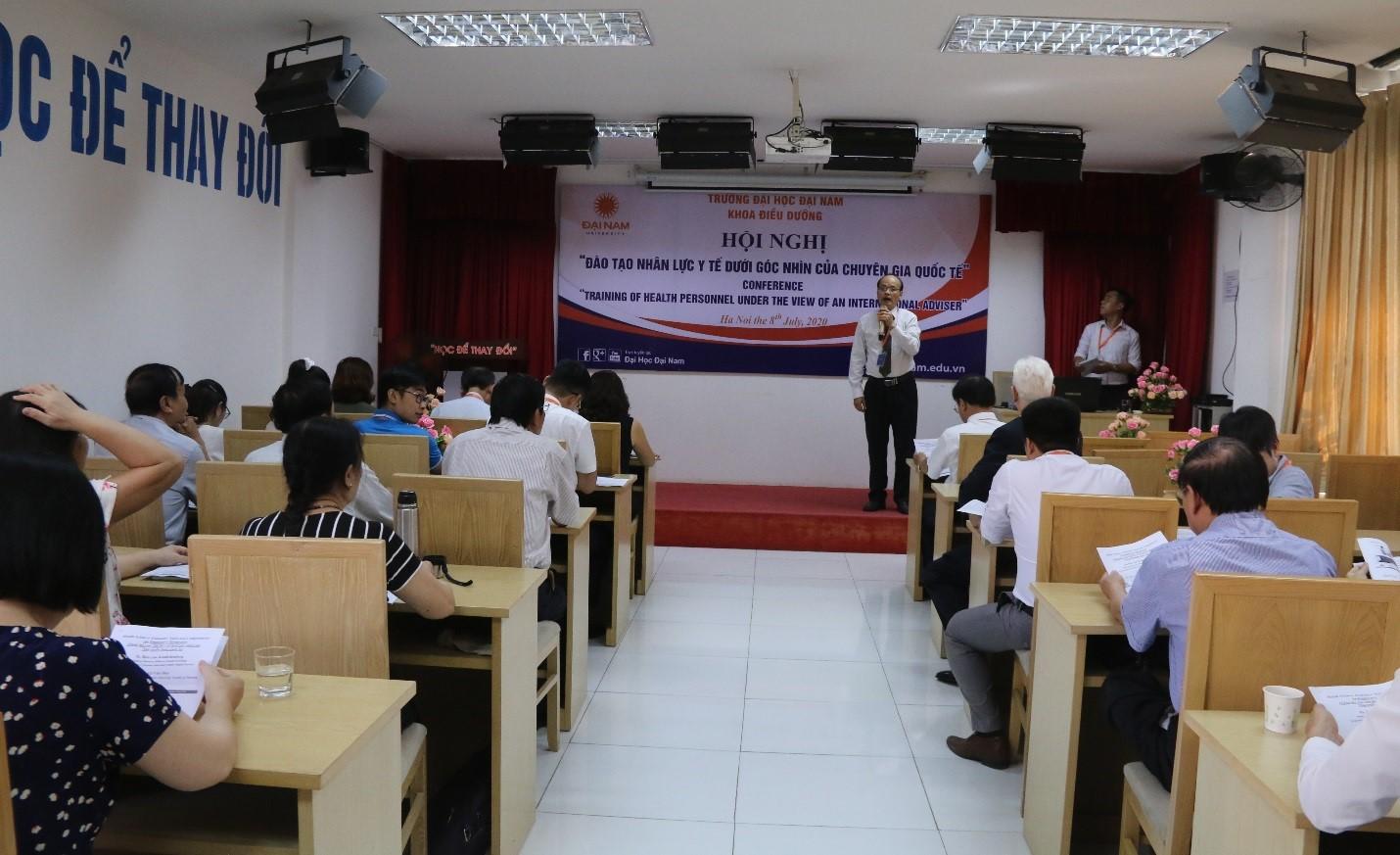
The symposium "Training medical human resources from the perspective of international experts" is of great significance in improving the quality of training according to international standards of Dai Nam University.
What kind of “product” should universities provide?
In response to the question, “ What kind of medical human resource products should universities provide to meet the needs of international employers?” , Prof. Dr. Ron van Konkelenberg said: A medical training institution needs to have 4 focuses including international standard teaching programs; practical training capabilities; providing modern programs and quality assurance that meet international standards.
“ The international standard curriculum is a program that emphasizes “soft skills” in practice; producing graduates with the capacity (professional knowledge, independent working skills, confidence and good attitude) ready to be employed immediately, not just knowing about knowledge…” said Dr. Ron van Konkelenberg.
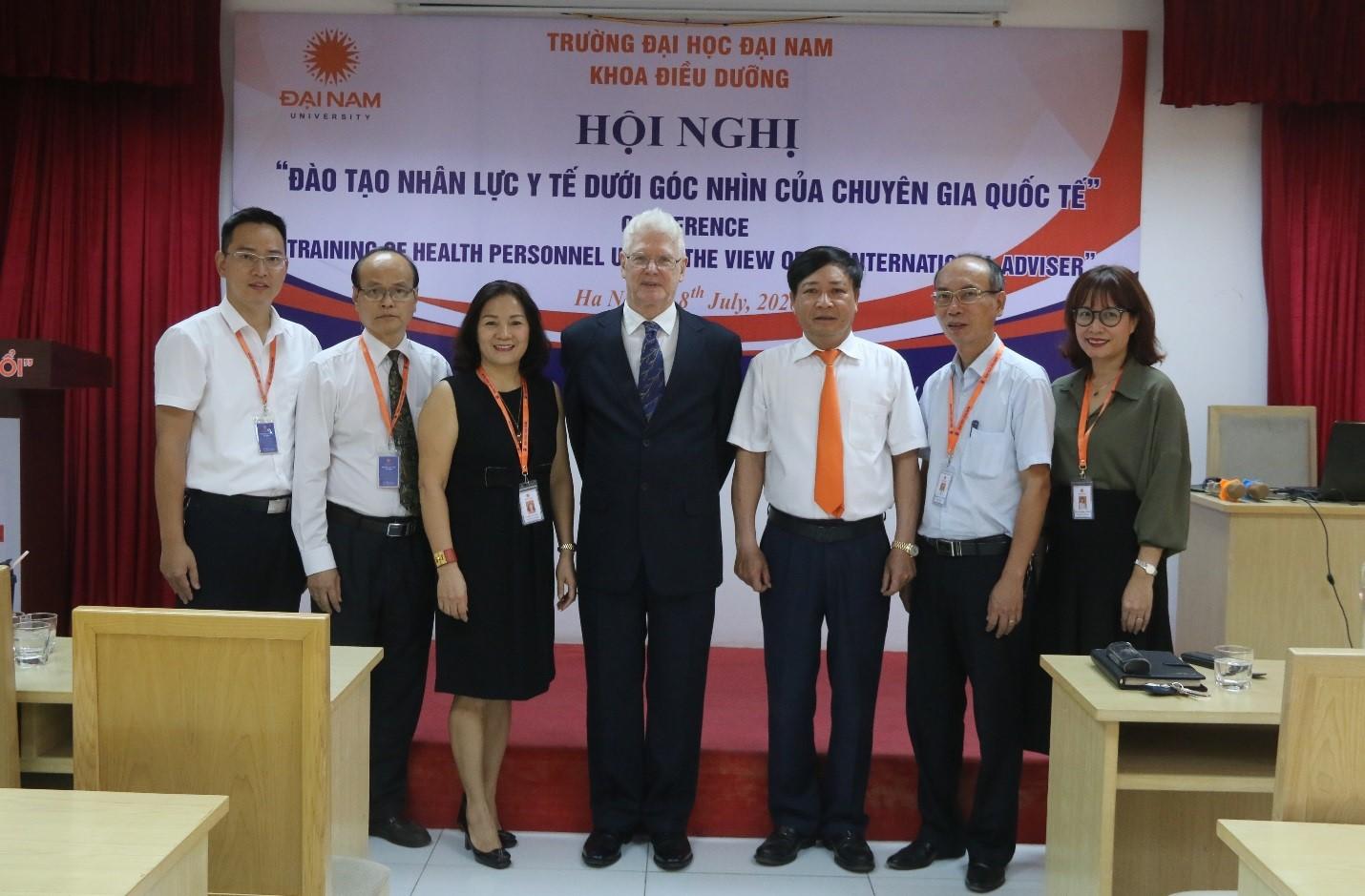
Dr. Le Dac Son and the school's Board of Directors hope that on the journey of building and developing the health training sector of the University of Danang, there will be the companionship of Prof. Dr. Ron van Konkelenberg.
Regarding practical training, schools must have skills practice at Skillslab; patient access at hospitals, clinics and practice in family and community health care.
The educational program must be taught/learned in English; there is an encouragement for lecturers to learn English; focus on problem-solving methods; lecturers and students know how to learn by themselves with computers; lecturers should have a teaching degree/certificate and participate in clinical activities at the hospital; the program is connected to websites (Pubmed; Elsevier; Uptodate; Medlars……); a well-organized skillslslab and teach core skills (about 50 skills for nurses and 50 for doctors); community service and give students early access to professionalism; teach the necessary things, not all existing knowledge; graduation exams are based on competence, not just knowledge as is currently the case; cooperate with private health services, with international health universities
Regarding quality control, Dr. Ron van Konkelenberg affirmed that this is an extremely important focus for training institutions to affirm their brand, compete with rivals and develop along the path of international standardization.
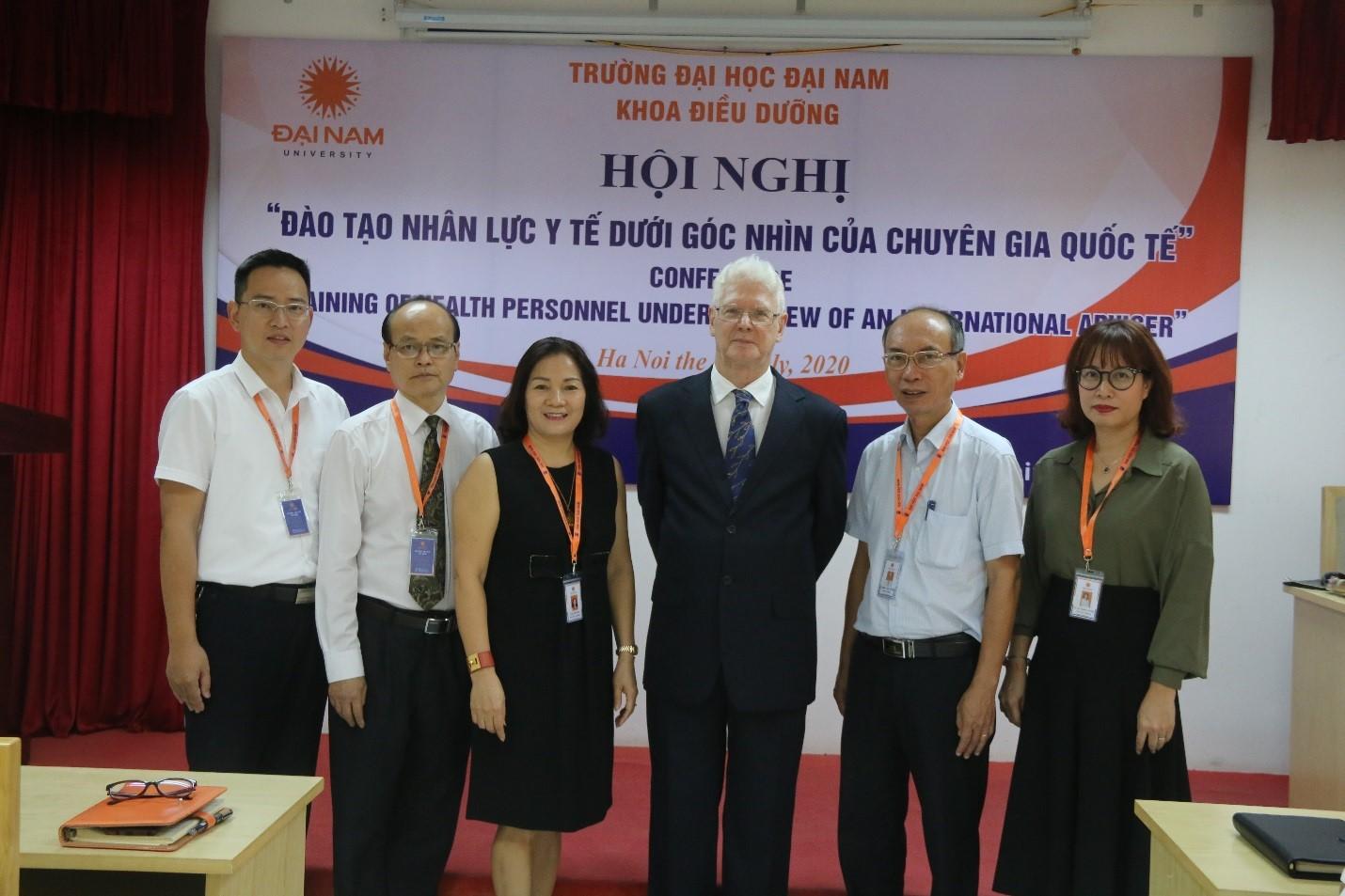
What direction for the health sector of Dai Nam University?
Although the assessment of medical graduates in Vietnam is not equipped according to international standards; the teaching capacity and training quality at medical training institutions have not met the practical requirements of international employers, Prof. Dr. Ron van Konkelenberg still affirms that medical training institutions in Vietnam, including Dai Nam University, are fully capable of improving training quality and being internationally ranked.
“The Faculty of Medicine, Pharmacy and Nursing of Dai Nam University will be more highly regarded if it is ranked higher than other schools in international assessments; if employers find that Dai Nam’s health graduates are highly competent and productive, requiring little additional training; if the graduation rate is higher than that of other schools; if many international licensing agencies accept Dai Nam’s diploma as equivalent to professional competence; if the school is ranked higher in the program that ensures strict international standards; if the school has better achievements in scientific publications that are internationally peer-reviewed…” shared Dr. Ron van Konkelenberg.
In his closing remarks at the conference, Dr. Le Dac Son, Chairman of the Board of Directors of the school, said: “The Health training sector, including Medicine, Pharmacy and Nursing, is the core training axis of Dai Nam University. Dai Nam University hopes that in the next 10 years, it will become a training institution ranked on the world medical education map. On the journey of building and developing the Health sector, the school is in great need of advice from international experts. The sharing at today's conference has helped the Board of Directors, the Board of Directors and the leaders of the departments of the Health sector have a comprehensive picture of training and using medical human resources; reshaping the development strategy to create different values…”
In response to the experts' comments, Dr. Le Dac Son - Chairman of the Board of Directors of Dai Nam University acknowledged and expressed his hope that Prof. Dr. Ron van Konkelenberg will directly advise the Board of Directors, the Board of Management and the leaders of the Faculty of Medicine, the Faculty of Pharmacy, and the Faculty of Nursing to prepare a quality improvement plan, including the following contents: Domestic and international cooperation, curriculum and provision of advanced output, connecting schools to provide clinical skills training experience, allocating resources to develop and coordinate the implementation of the plan.
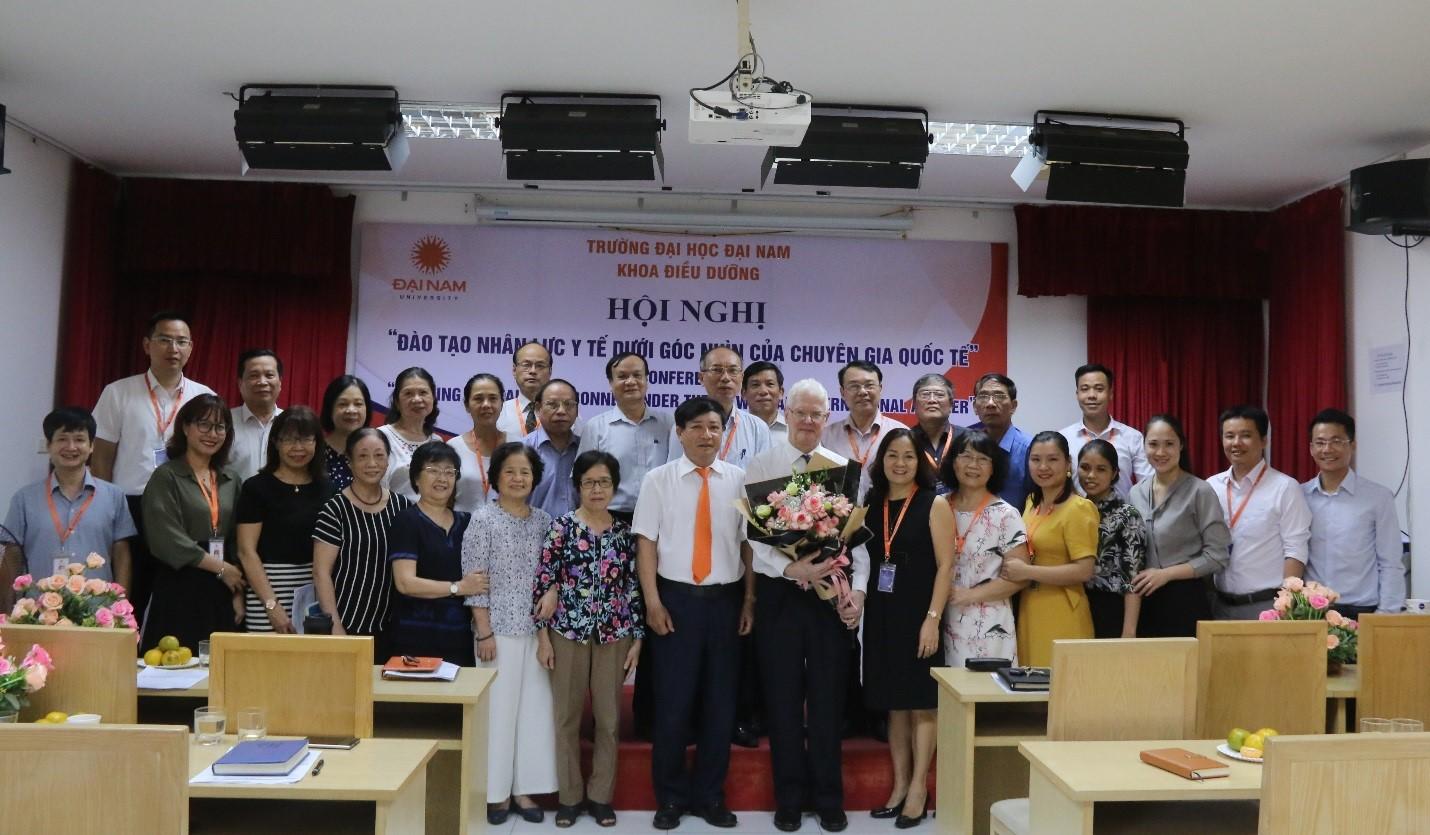
Dr. Le Dac Son also directed the health sector to adjust the training program, allowing students to graduate by taking a competency-based exam instead of a knowledge test as is currently the case. The school will reform the health sector's personnel, selecting lecturers with good professional qualifications, foreign languages, teaching skills and clinical knowledge; ensuring strict compliance with input and output standards to provide the market with medical doctors, university pharmacists and nursing bachelors who are ready to work immediately and are highly appreciated by employers.
In the 2020-2021 school year, Dai Nam University enrolls 1,820 full-time university students in 16 training majors. For details, see HERE |
Thu Hoe
Register for admission consultation 2025
scholarships and tuition support worth up to 55 billion VND

scholarships and tuition support worth up to 55 billion VND





